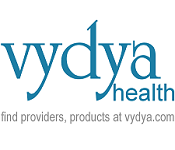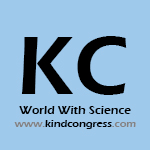The specialization in the diagnosis and treatment of neurologic disorders in patients is termed as neuroscience. Neurology is about the study concerned with structure, function and disorders related to the nervous system. According to recent innovations in biosensor technology and wireless data transmission neuroscience plays a major breakthrough, requiring massive revisions in development of the nervous system and the brain and its impact on cognitive functions. Neurosurgery is an invasive technique applied in the treatment of neurological disorders
-
Brain Development
-
Cerebrovascular Disease
-
Multiple Sclerosis
-
Neurofibromatosis
Paediatric Neurology is also called as Child Neurology. It is dealt with the branch of medicine dealing with the diseases of nervous system in new born, infants, neonates and children. The concept of child neurology incorporates disorders as well as diseases of the brain, spinal cord, central nervous system, autonomic nervous system, peripheral nervous system, muscles and blood vessels that affect individuals in these age groups. The symptoms are from simple disorders such as migraine or cerebral palsy through to more complex and rare conditions such as metabolic disease or neurodegenerative disorders.
-
Concussion
-
Neonatal neurology
-
Brain malformations
-
Autism
-
Paediatric sleep disorders
Psychiatry is a branch which diagnosis, treatment and prevention of behavioural disorders. A mental disorder is nothing but a psychiatric disorder where it results in distress and impairment of functions. The causes for mental disorders are uncertain. Many health professionals are involved in the treatment like psychotherapist, neurologists, and psychiatrists. They assess the stage of illness by assessment of symptoms. Antidepressants and antipsychotics are generally used for the treatment of mental illness.
Mental health refers to our behavioural, and emotional disorders .Mental health affects daily routine life, physical health of the person.
-
Anxiety disorders
-
Personality disorders
-
Phobias
-
Eating disorders
Dementia is not a single disease in itself; it is symptoms of loss of memory, communication, and thinking. Dementia increases with age. In every 4seconds there is a new case of dementia. Old people are mostly affected by dementia. Alzheimer’s disease is one of the types of dementia. This is caused because of protein abnormalities. Brain tissue of the person suffering from Alzheimer’s disease has less number of cells and the brain shrinks. Alzheimer’s disease is caused by lifestyle, genetics, and factors that affect the brain. Parkinson’s disease damages nerve cells in the brain which produces dopamine and the decrease in the dopamine levels causes abnormal activity that result in Parkinson’s disease. This disease is caused mainly due to loss of neurons which produces dopamine.
-
Mood disorders
-
Depression
-
Changes in sleep habits
-
Hereditary
Clinical neurology includes the diagnosis and treatment of brain damage caused by strokes or any injuries. Clinical Neuropsychiatry is the area of overlap between neurology and psychiatry which includes neurodegeneration, neuroinflammation, epilepsy, brain injury neurological disorders. Neuropsychiatry deals with mental disorders of the brain and spinal cord. Neuropsychiatry is closely related to the fields of neuropsychology and behavioural neurology.
Neuropharmacology is the study of drugs affecting the cellular function in the nervous system through which they influence behaviour. Drugs affecting human behaviour are the study of neuropsychopharmacology which affects the human brain. The study of neurons and neurochemical interactions is the molecular neuropharmacology. Researchers are developing drugs to treat the disorders like pain, mood disorders and addiction.
-
Behavioural Neuropharmacology
-
Molecular Neuropharmacology
The disorders of any part of the nervous system are considered as neurological disorders. The most common neurological disorders are Alzheimer’s and dementia. They affect the individual’s ability to think and make loss of memory. Alzheimer’s is associated with aging process and so there is no cure. Symptoms for neurological disorder include paralysis, muscle weakness, loss of sensation, seizures.
Stroke is occurred when brain blood vessels blocks, bleeds or ruptures. This damage in the brain prevents the supply of blood and oxygen to the brain tissues. Without oxygen human brain tissues and cells start dying and within minutes brain functioning stops.
-
Embolic stroke
-
Thrombotic stroke
-
Intracerebral stroke
-
Subarachnoid stroke
Neurology nursing care is based on preventing and treating conditions of the nervous system, including the brain, spinal cord, and nerves. Complete nervous system should be understood by them. They should be having keen assessment and monitoring skills, vast knowledge about neurological disease and conditions. Neurology nursing is a place where nurses may work in outpatient or inpatient settings, care for surgical or medical patients and help patients even if there is an acute illness. Stroke, Dementia, Epilepsy, Seizures can be managed by these nurses.
Neurotherapeutics covers the research on experimental treatments of neurological disorders. The discoveries of novel diagnostic therapeutics, Sleep disorders, sinus headache, Neurogenesis, new therapeutics evolved for neurological disorders.
-
Stem cells and treatment
-
Cell and gene based approaches
-
Neurotransmitter release and cell repair
Neural engineering is also termed as neuroengineering which is related to biomedical engineering. This involves relationship of neurons, neural activity, and the nervous system that utilizes engineering techniques to understand the neural systems. The design problems of living neural tissue are solved by neural engineers.
Traumatic brain injury is caused by the penetration of any object into the brain tissue. Brain cells are temporarily affected if it is mild traumatic brain injury. Physical damage to brain, bleeding, torn tissues is done when more serious traumatic brain injury. These injuries result in deaths. Sudden jolts of the body or head results in brain injuries. Neuroscience involves the function, structure and genetics of the central nervous system.
Behavioural neuroscience deals with the psychological behaviour of the humans. This is also called as biological psychology.
Ophthalmology deals with the disorders of eye. Visual neuroscience deals with the visual system of the body. Main aim of visual neuroscience is to understand the neural activity resulting in visual perception. This mainly focusses on brain mainly the visual cortex.
Cognitive Neuroscience is the study of biological processes that include cognition which have connections in the brain which are involved in mental processes. Cognitive actives are controlled or affected by the neural circuits in brain. Cognitive neuroscience includes both neuroscience and psychology. Neurons and parts of the brain play an important role in this field. Psychology is combination of behaviour and mind.
-
Functional neuroimaging
-
Electrophysiology
-
Cognitive genomics
-
Behaviour genetics
Addiction psychiatry is a clinical speciality within the psychiatric patients mainly focuses on the evaluation, diagnosis, and remedy of human beings who are struggling from one or greater problems related to addiction. This might also consist of problems involving criminal and unlawful drugs, gambling, sex, food, and different impulse manage disorders. Addiction psychiatrists treat a wide variety of sufferers of all a while with varying conditions. Each case of dependency is special and ad psychiatrists should take care of every individual patient. Addiction psychiatrists have to recognize the numerous elements that tie into each individual's struggle with an addiction.
-
Forensic psychiatry
-
Hospice and palliative medicine
-
Clinical neurophysiology
The concept that addiction is a “brain disease” has become widespread and rarely challenged. As Brain disease suggests that understanding and treating addiction in brain is necessarily a useful level of analysis. It explains the limits of over-medicalizing and acknowledging a genuine place for medication in the therapeutic collection. It is essential for an addicted person to understand addiction and to providing optimal care. The brain diseased person can disguises the dimension of choice in addiction, the capacity to respond, and also the essential fact people use drugs for reasons (as consistent with a self-medication hypothesis). The latter becomes obvious when patients become self-denying, yet still struggle to assume rewarding lives in the kingdom of work and relationships. Addicts can choose to recover and are not own victims of their own “hijacked brains
-
Mental and emotional development
-
Child behavior with peers
-
Environmental influences in child behavior development
Global Market Analysis
The graph depicts the industry analysis of global market neurology medicines. As estimated in 2018, the neurology market of medicines grows from $33.3 billion to $39.4 from 2019 to 2024 with a compound annual growth rate of (CAGR) of 3.5%.This is analysed from global market trends data of 2018.This highlights the current and future neurology medicinal use. All these medicines are used for the treatment of neurological disorders like Alzheimer’s disease, Parkinson’s disease, Epileptic Disorders, Brain tumours. Neurology medicines are mostly used now-a-days to get rid of all problems related to brain.
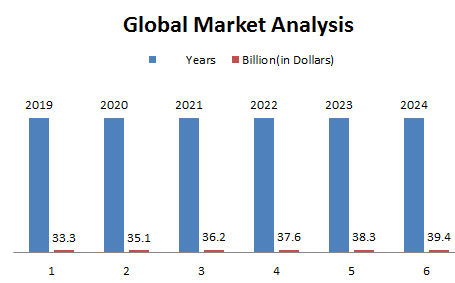
Brain tumour therapeutics
This graph depicts Brain tumour therapeutics global market. The brain tumour therapeutics must grow from $1.1 billion to $2 billion in the time span during 2018 to 2023. This is calculated at a compound annual growth rate (CAGR) of 12.9% for the period of 2018-2023. As brain tumours, brain cancers; brain injuries are common in infants, children, adults and older people also. Brain tumour is nothing but a mass or group of abnormal cells in the brain. And this brain tumours may result in malignant (cancerous) or benign (noncancerous). Memory loss .Dizziness Difficulty in swallowing, Hand tremors are the symptoms in brain tumours. As the brain tumour therapeutics are growing we may reduce the effects of tumours and the people suffering from tumours.
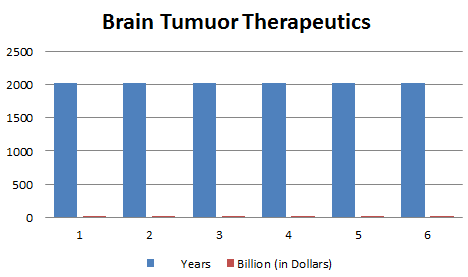
Global Trauma Products
This graph depicts Global trauma products Market. Trauma Products Market is nearly $4.52 billion in 2017 and it is predicted to grow to $8.10 billion by 2025. This is growing at a Compound Annual Growth Rate (CAGR) of 6.7% from 2017 to 2025. These trauma products have seen more number of investors with increasing injuries and accidents.
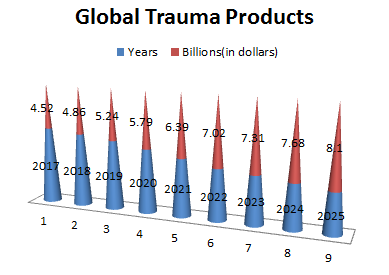
List of Medical Colleges in UAE
-
Dubai Medical College
-
Dubai Pharmacy College
-
Murdoch University Dubai
-
European University College
-
Canadian University Dubai
-
Gulf Medical University
-
RAK Medical & Health Sciences University
-
Mohammed Bin Rashid University Of Medicine
-
United Arab Emirates University
-
College Of Medicine and Health Sciences
-
Al Tawam Medical College
-
Khalifa University
-
University of Sharjah
-
Ajman University
-
Sharjah Surgical Institute
-
Medical campus University of Sharjah
-
College of Health Sciences
-
College of Medicine University of Sharjah
-
Al Ain University - Al Ain Campus
-
Zayed University
-
International Health & Safety Training Center (IHSTC)
-
IBC Medical Services
List of Neurology Universities in Dubai
-
German Neuroscience Center
-
University of Dubai
-
Novomed Centers - Novomind Mental Health
-
The British University in Dubai - BUiD
-
American Center for Psychiatry and Neurology
-
Curtin University Dubai
-
Murdoch University Dubai
-
Middlesex University Dubai
-
University of Wollongong in Dubai (UOWD)
-
Amity University Dubai campus
-
Neuropedia - Neuroscience Center | Child Psychology and neurology Specialists Dubai
-
German Neuroscience Center (JLT)
-
Heriot-Watt University Dubai
-
Manipal Academy of Higher Education - Dubai Campus
-
American University in the Emirates
List of Neurology Universities Worldwide
-
Harvard University
-
Stanford University
-
Massachusetts Institute of Technology
-
University of California—San Francisco
-
University College London
-
Johns Hopkins University
-
Columbia University
-
University of Pennsylvania
-
University of Oxford
-
Washington University in St. Louis
-
New York University
-
King's College London
-
University of Cambridge
-
Yale University
-
McGill University
-
University of Washington
-
University of Pittsburgh
-
University of Melbourne
-
Duke University
-
Emory University
-
University of Munich
-
University of Zurich









